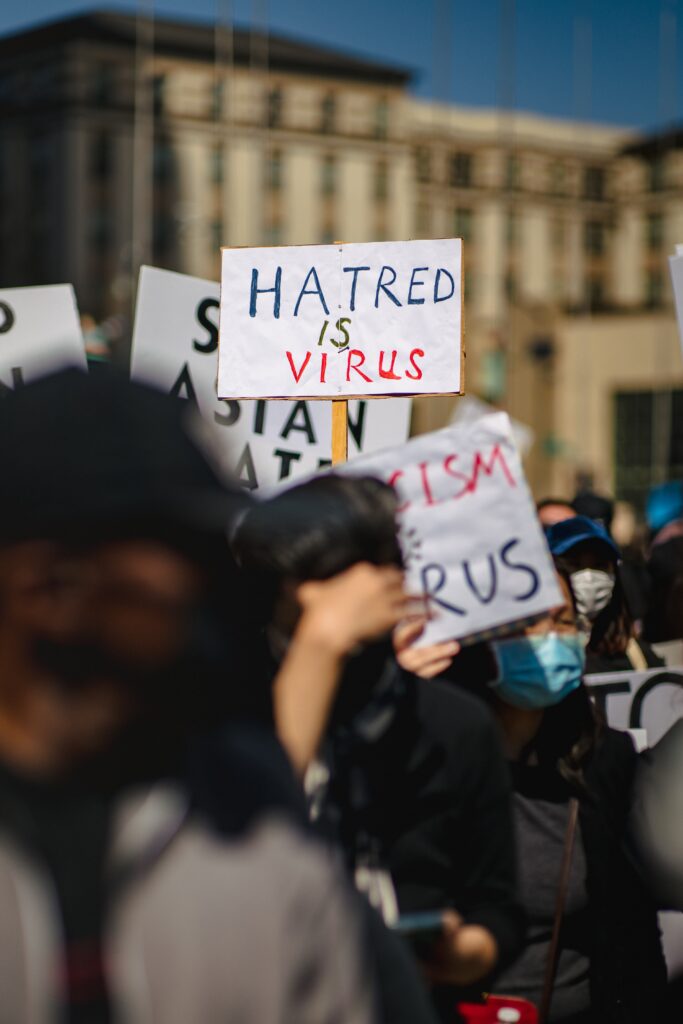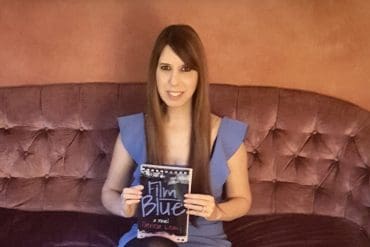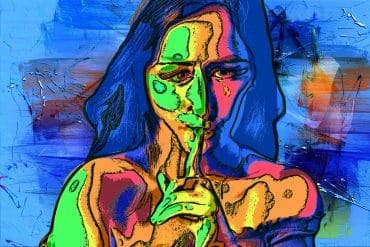After the Hate Speech Comes the Free Dessert
Author’s Memo
“After the Hate Speech Comes the Free Dessert” recounts a trip that I took to Brno, Czech Republic in 2011. During that time, I witnessed an American ex-pat prompting another man (who was presumably Central European) to laugh at the hate speech he used to describe Black Americans. Twice on this trip I overheard Americans mocking or dehumanizing others when they believed no one around them could understand fluent English. In both instances the Americans around me presumed they could say these slights and slurs because language barriers granted them freedom from confrontation and social pushback. While we often say that anonymity online makes people say things they wouldn’t otherwise in person, this essay is proof that language barriers similarly embolden people to speak cruelly.
‘While we often say that anonymity online makes people say things they wouldn’t otherwise in person, this essay is proof that language barriers similarly embolden people to speak cruelly.
In the case of the ex-pat, I use this story to explore how I watched him use laughter coercively. The ex-pat believed that he was speaking without any repercussions, so he used hate speech openly. It was clear from watching the two of them that the American’s laughter both did and did not translate across language and socio-cultural barriers. From my perspective, it seemed as if the ex-pat wanted to goad the man into using hateful terms. Watching this interaction complicated how I viewed laughter; my scholarly training had taught me to see laughter as something that broke down power dynamics. Here, I used it to teach someone to feel comfortable using an unspeakable slur.
‘My work thus illuminates several social issues. It shines light on how Americans bring their racist views with them to other countries, infecting others.
My work thus illuminates several social issues. It shines light on how Americans bring their racist views with them to other countries, infecting others. By examining my own culture from the perspective of an insider (I’m also American) but also an outsider (I’m watching ex-pats and travelers navigate other cultures), I prompt Americans to consider how deeply embedded racism and disregard for the poor are in our society. Finally, I invite all readers to understand the relationship between power and laughter with greater complexity.

What One Cruel Laughter Can Mean: My Fellow Americans
“Which one is harder to translate: a news story or a joke?” A military intelligence recruiter posed this question to my Spanish III class. I was in eleventh grade at the time, and my classmates unanimously agreed that the news must be harder to translate because of the need to interpret facts correctly. But the officer shook his head. He explained that a joke was harder to translate because everyone needed a shared social context. In other words, language barriers could make it very difficult to grasp what was funny and why.
“Which one is harder to translate: a news story or a joke?”
The officer’s inquiry stayed with me years after it was first posed, and it came back more forcefully in 2011 when I was visiting Brno. I had never been outside of the United States until that trip. My best friend and her husband were stationed in Hungary. She flew me out so we could take a tour through Austria, the Czech Republic, and Hungary. My friend had chosen these places because many of the contemporary writers I loved had lived there. The trip to Brno was a surprise. She had remembered my love for Milan Kundera, and she arranged for us to stay in the city where he was born.
Unlike many of the other cities we visited, Brno did not seem designed for hordes of tourists. Here, waiters and staff struggled to understand our English, even as their hospitality and kindness shined through. Outside our hotel window an imposing communist statue depicted two people sharing a loaf of bread. Signs in our hotel stated that it had once housed Joseph Stalin, which I turned over in my mind every time I went through its doors. In contrast to our stay in Prague, I heard almost no one speaking English in the streets of Brno. Admittedly, I was relieved. I had heard stereotypes about how Americans were obnoxious when they traveled, and although I only encountered a few while I was there, I couldn’t help but agree with these assertions based on my observations.
‘But the officer shook his head . He explained that a joke was far harder to translate because everyone needed a shared social context. In other words, language barriers could make it very difficult to grasp what was funny and why.
While crossing Prague’s Charles Bridge in temperatures so cold it tested my love for winter, I saw a man on a rug beside an elderly mutt. The man knelt with his waist bent forward, his face concealed, and his arms resting beside him. His pose conveyed humility, and he had a cup for spare change. As my friend and I neared him, I heard the unmistakable sound of two Americans talking behind us.
They were debating the ethics of handing the man money.
“I would do it, but I just don’t believe that he should have a dog,” one said, a woman in her twenties.
“Oh, I agree,” said the young woman next to her, “it’s so selfish of him to have that poor dog there.” They murmured their agreement with one another, in clear earshot of a man they assumed wouldn’t understand their conversation.
‘I had heard stereotypes about how Americans were obnoxious when they traveled, and although I only encountered a few while I was there, I couldn’t help but agree with these assertions.
I hoped that exchange would be the last time I recoiled at American tourists, but I encountered worse in Brno. Because of the bitter cold and wind, which was unlike the mild and rainy winter I was experiencing back home, my friend and I kept popping into cafes to warm up. That day, we stopped into an unassuming restaurant for lunch. It had plain wooden tables and chairs and a gruff waiter who struggled to understand our orders. As my friend and I planned out the rest of our day, a middle-aged white man approached our table.
“I haven’t heard Americans speak in sometime!” he said with a big smile. “I’m from South Carolina, and it feels so good to hear English again.” His eyes were bright with excitement, and we exchanged pleasantries. Eventually, he went back to his table where he sat across from another white man, who looked to be in his late sixties or seventies.
‘I hoped that exchange would be the last time I recoiled at American tourists, but I encountered worse in Brno.
I first realized what they were discussing after the waiter had dropped off our lunch. My seat was positioned in such a way that I could hear the chatter of the two men. The American man had moved to the Czech Republic because of his wife. She had been born and raised there. The man opposite him spoke far less English, and he spoke with a heavy Central European accent. He often needed words clarified for him, and each time the American repeated a word, his peer would rock back, repeating it in a tone of understanding. While I could hear the conversation fully, my friend could not. She was busy listening to messages on her phone, sorting out whether we would move on to Hungary that night.
At this point, the conversation was reaching its zenith. The American man spoke loudly and boldly. He proclaimed to his peer the absolute best part of not being in South Carolina was that he no longer had to be “around Black people,” and then he paused and with a tone of relief said, “well, I can say this now because no one will understand the term here,” and, without any shame, he described Black people using a terrible, dehumanizing slur.
‘… the absolute best part of not being in South Carolina was that he no longer had to be “around Black people”…
He then barked with laughter, and said it again, even more proudly. His whole body was teeming with enthusiasm, and he was slightly jumping up and down in his seat. His friend was confused and unfamiliar with the word, so the American man taught it to him, laughing as he did it. The friend repeated it with gusto, joining in the other man’s hearty laughter. The older man tipped his head back, throwing his hands up in the air like a happy child. But after a second, the American realized that there were people who would understand what he said. Turning, he saw that I was openly staring at him. The smile slid off his face, and he turned back to his friend, changing the subject, and lowering his voice.
I had heard that word used by white people before, namely by my own relatives, people that I had shunned as soon as I could get away from them. Because of my own privilege, I had never used it heard casually in conversation in a public place, certainly never with so much joy and laughter. The American’s confidence was bolstered by the fact that almost no one was speaking fluent English in the restaurant and that his friend likely wouldn’t really understand him.
‘And then he paused and with a tone of relief said, “well, I can say this now because no one will understand the term here,” and, without any shame, he described Black people using a terrible, dehumanizing slur.
But it was his laughter that made the situation crueler. Its coerciveness disguised as playfulness invited the other man to repeat the slur and laugh too. The American assumed he was safe from scorn, but also wanted the man opposite him to grasp that the word he was saying was unacceptable to most. The other man had no context for that word, I have to assume, but he could intuit that it was disrespectful, making it tantalizing for his friend to say.
In his laughing response, the European man signaled that he wanted to belong, he wanted the American to like him and approve of his reaction. I wondered if he would have laughed if he knew the history of that word. Would he have laughed so easily? Would he have laughed at all? We speak so often of laughter’s ability to dismantle and diffuse power. But here, laughter was used to elicit complicity and to validate prejudice, its ability to shape the contours of belonging used for hateful ends.
‘But it was his laughter that made the situation crueler. Its coerciveness disguised as playfulness invited the other man to repeat the slur and laugh too.
Once my friend finished up with her messages, I relayed to her what I overheard. She was grim and disgusted. As we finished our meal, the waiter came by and handed us each a cheese pastry dusted with powdered sugar. Confused, I told him that we had not ordered anything else. He shook his head and pointed at the table behind us where the two men were deep in another conversation. The waiter explained haltingly that the American man had sent them over as a gift. I looked directly at the table, but neither man looked back.
After the waiter left, I took my fork and slowly tore the pastry apart, revealing raisins and the soft cragginess of farmer’s cheese underneath its crust. It’s possible that the dessert was sent as an acknowledgment of the man’s shame. I have no idea when he sent it over, whether it was before or after I heard his blatantly racist remarks. But it didn’t feel apologetic. It felt like a gesture meant to convince me that what I had seen was neither serious nor a reflection of his actual self. It was an assurance to his fellow Americans that he really was a good man after all.
Credits
Featured Image of beautiful Brno-střed by Ignat Arapov for Unsplash
Photo of Poster with a Message ‘Hatred is Virus’ by Jason Leung for Unsplash
Learn More
New to autoethnography? Visit What Is Autoethnography? How Can I Learn More? to learn about autoethnographic writing and expressive arts. Interested in contributing? Then, view our editorial board’s What Do Editors Look for When Reviewing Evocative Autoethnographic Work?. Accordingly, check out our Submissions page. View Our Team in order to learn about our editorial board. Please see our Work with Us page to learn about volunteering at The AutoEthnographer. Visit Scholarships to learn about our annual student scholarship competition.
Emily Hall holds a PhD in contemporary Anglophone literature. Her scholarly and creative work has been published, or is forthcoming in, South Atlantic Review, Reception, Pedagogy, the Journal of Medical Humanities, and Taproot. She is a writer and lives in North Carolina with her husband and pets.










